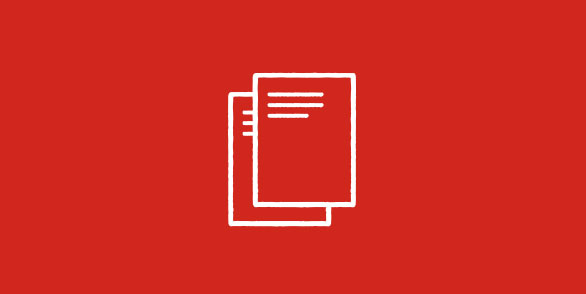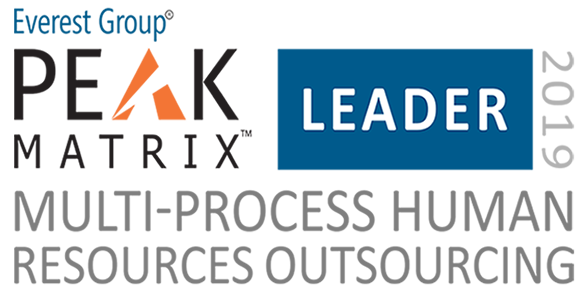Managing payroll can be a real challenge. Fortunately, payroll software can help. These solutions not only ensure timely and accurate payments to your workforce, but they also help improve efficiency by saving time, minimising errors and improving data security.
From managing salaries, benefits and taxes to ensuring compliance with various laws and regulations — payroll solutions can do much more than simply calculate wages. So, let’s explore what payroll systems can do for your business.
Table of Contents
What is payroll software?
Payroll software is a type of payroll system. Although it’s a hugely popular choice, it’s not the only option. For example, many companies opt for in-house payroll systems with manual payroll processes. Thanks to their low costs, these systems are a great option for small businesses and start-ups, but they can prove problematic as headcount grows.
Other companies choose to outsource their payroll needs to accountants and payroll service providers. In both cases, somebody else then runs their payroll and files their company’s taxes. These are great options for anyone looking for targeted support from a financial expert.
Payroll software, on the other hand, automates the entire payroll process — from gathering data to calculating payroll and paying employees. This helps minimise human error and makes it perfect for businesses of all sizes. Note: HM Revenue & Customers (HMRC) offers free basic software for businesses with fewer than ten employees.
What are the different types of payroll software?
With so many options out there, it can be tricky to get your head around the different types of payroll software. But don’t worry. There are essentially two main types of payroll software:
On-premises payroll software
These payroll solutions are installed and operated on a company's own servers and computers. You benefit from full control over your data and can customise the software to suit your needs. However, these solutions require significant investment in IT infrastructure, maintenance and the staff to manage and run them.
Cloud-based payroll software
Cloud-based payroll solutions are hosted on remote servers and accessed online. They provide flexibility and scalability to match the ebb and flow of your business, complete with robust data protection measures and compliance tools. What’s more, they can usually be accessed by employees anywhere in the world.
How does payroll software work?
The main purpose of payroll software is to calculate and process employee wages. It uses employee information (such as name and National Insurance number) and data from your company policies to calculate each employee’s net pay, after factoring in various deductions such as tax, NI contributions and other adjustments, like those for sick leave and holidays.
Once the calculations are complete, the software then generates detailed payslips for each employee and makes the appropriate payments. As a final step, payroll solutions also create payroll reports for the month or given period to ensure complete and compliant financial records.
What are the features of payroll software?
Payroll software comes with a range of great features to take the stress out of your payroll. Here are the most important:
Automated payroll processing
Payroll solutions automatically calculate wages, taxes and deductions based on the hours your employees work and your company policies. They also automate payments to all types of workers, for example, salaried and hourly, temporary staff, freelancers and even employees around the world.
Employee information management
Payroll software stores and manages employee data, including names, addresses and bank account details. Self-service portals allow employees to access their payroll information, including payslips, tax information and time-off requests. They can even edit their personal information and payment preferences.
Time and attendance tracking
Payroll solutions keep track of both how much your employees are at work and absent. This data then automatically flows into payroll calculations. You can even integrate them with existing time management systems to turn accurate work hours into precise payroll calculations.
Tax management
Payroll software automatically calculates and withholds tax from employee pay, generates important forms and pays any tax your company owes. Automating both calculations and filings helps reduce the risk of penalties from HMRC.
Payment processing
Payroll systems pay employee wages directly into their bank accounts. What’s more, they can also print physical payslips if needed. They carry out secure and efficient payments with automated direct deposits, ensuring they are sent to the right place at the right time.
Compliance management
Payroll software automatically changes to the latest rules and regulations, making it easy for your business to stay up-to-date with any applicable labour laws, tax regulations or industry-specific requirements. Plus, it can also generate reports for audits and regulatory filings.
Reporting and analytics
Payroll solutions generate various reports and analytics for valuable insights into your payroll expenses, employee costs, tax liabilities and other key metrics. This can help you improve your decisions and spot room for improvement, such as removing any bottlenecks or outdated procedures.
Data protection
Payroll software typically comes with a host of security measures to protect sensitive payroll and personal data, including encryption, access controls and data privacy regulations (such as The General Data Protection Regulation or GDPR). It also helps reduce the risk of data breaches by, for example, restricting certain information to specific staff.
Accounting integration
Payroll software integrates with accounting platforms, avoiding double data entry, reducing errors and keeping financial records fully up to date. Moreover, it can also integrate seamlessly with other systems like human resource management (HRM) software.
What are the benefits of payroll software?
Payroll solutions offer lots of advantages for almost any company. Here are seven reasons you should consider implementing payroll software in your business:
Accuracy
Payroll can be both complicated and time-consuming, especially when you’re hiring new people or merging. And this is when errors start to creep in. Indeed, ADP’s global payroll survey revealed that average payroll accuracy is just 78 percent1.
Fortunately, payroll software ensures that your employees are paid the right amount at the right time. It reduces the likelihood of errors associated with manual calculations, which ultimately helps build trust and confidence with your employees.
Transparency
Modern payroll systems allow employees to access their payslips, time records and more. This gives them a clear understanding of exactly how much they earn and how much they are taxed. Not only does this foster trust and help lay the foundations for a successful employer-employee relationship, it also reduces the enquiries your payroll team has to handle.
Payroll software also provides insight into personnel costs to help your business stay on budget and plan for the future. It integrates with other departments, such as finance and accounting, so that it has all the information needed to create detailed reports for data-driven decisions.
Scalability
Payroll systems scale up and down with your business, so you don’t have to worry about falling behind as your workforce grows. For example, if you’re expanding to a new country with different tax laws, payroll software automatically incorporates the new rules to keep you compliant.
Cloud-based solutions also offer unprecedented scalability, making it easy to handle more data for more employees without compromising on speed or accuracy. These systems adapt to your unique needs and changing requirements.
Time
Outdated payroll systems can slow your company down. Entering data manually is both time-consuming and prone to mistakes. Worse still, it can take a lot of time to correct errors — not to mention cause some serious headaches.
Payroll software, however, automates the entire payroll process, freeing your HR team from repetitive and routine tasks. This saves valuable time, which you can instead spend on other critical or more productive initiatives.
Accessibility
One of the main benefits of cloud-based payroll solutions is that they make it easy for your teams to manage payroll from anywhere. What’s more, you can typically access these platforms from almost any device, such as a laptop or mobile phone.
This is perfect for both hybrid and remote work but it also allows both management and employees to handle payroll and personal information on the go, making it easy to view things like payslips from anywhere, at any time.
Compliance
Accuracy and consistency are key to payroll compliance. Any discrepancies in your records can put your company at risk of non-compliance and hefty fines.
Payroll software, however, helps reduce compliance risks by calculating tax and other deductions based on the latest Philippines tax law — and updating automatically so you never miss a beat. It also keeps accurate records for a complete picture of your historical payroll.
Security
Payroll data is extremely sensitive as it contains myriad personal details. GDPR requires companies to protect all personal data, including employee names, addresses, bank details and national insurance numbers — all part of payroll processing.
Payroll software typically encrypts sensitive information for secure storage and transmission. It also has features password protection and access controls to ensure that only authorised personnel can access sensitive data.
How to choose payroll software
Payroll software is an asset to almost any business. After all, it automates the payroll process to help improve payroll accuracy, ensure compliance and free staff from mundane tasks. But it’s vital to get the right software for your business.
Before you make a choice, consider your data security needs and analyse all the potential benefits carefully. Top tip: make sure the software can integrate with your existing systems, as there’s nothing more frustrating than incompatible platforms. Take the time to understand exactly how the solution will work for you.
Manage your employees’ compensation the easy way with ADP payroll software. Our powerful solutions are easy to configure, reliable and flexible to your needs. Find out how we can help improve your payroll system for a happier workforce.
Source
- ADP Research Institute’s People at Work 2023: A Global Workforce View





